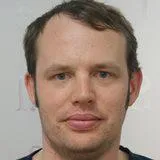Please note: this event has passed
Speech is a unique and rich health signal: no other signal contains its singular combination of cognitive, neuromuscular and physiological information. However, its highly personal and complex nature also means that there are several significant challenges to overcome to build a reliable, useful and ethical tool suitable for widespread use in health research and clinical practice.
With hundreds of participants and over 18 months of speech collection, RADAR-CNS incorporates one of the largest longitudinal speech studies of its kind --- a golden opportunity to investigate aspects throughout the entire data pipeline, from recording through to analysis, where gaps in our understanding remain.
In this webinar, we will describe how our voice is a tacit communicator of our health and present our initial findings, which are from the RADAR major depressive disorder study.
There will be an opportunity to ask questions after the presentation.
To register to attend
This seminar is open to the general public, members of the RADAR-CNS consortium and our research participants.
The link to Microsoft Teams will be circulated to attendees ahead of the seminar.
About the speakers
Dr Nicholas (Nick) Cummins is a Lecturer in AI for speech analysis for health at the Department of Biostatistics and Health Informatics at King's College London. He is also the Chief Science Officer for Thymia, a start-up developing technologies to make mental health assessments faster, more accurate and objective. Nick is fascinated by the application of machine learning techniques to improve our understanding of different health conditions. He is particularly interested in applying these techniques to mental health disorders. He is actively involved in the RADAR-CNS project in which he assists in the management of Work Package 8: Data Analysis & Biosignatures.
Dr Jude Dineley is a postdoctoral researcher in the Department of Biostatistics and Health Informatics at King's College London and at the Chair of Embedded Intelligence for Health Care and Wellbeing at the University of Augsburg in Germany. She contributes to the RADAR-CNS project as part of the Data Analysis & Biosignatures work package, with a particular focus on speech recordings collected remotely using smartphones from individuals with major depressive disorder and multiple sclerosis. She holds a PhD in ultrasound imaging from the University of Edinburgh, an MSc in medical physics from the University of Aberdeen and has worked in the health service, including as a senior physicist in radiation oncology.
About the chair
Dr Jake Andrews is a Research Fellow at NIHR Mindtech Medtech Co-operative at the University of Nottingham. He currently works on the Horizon 2020- and IMI-funded RADAR-CNS project. Jake's work on the RADAR-CNS project involves understanding the value and potential of portable and wearable technologies in clinical pathways for multiple sclerosis, epilepsy and depression. Jake completed his PhD in 2018, which explored the use of machine learning in predicting depression in older adults, capturing user and clinician views of using technology for these purposes. Jake's interests are in the use of technologies to support neurological health through predictive and preventative approaches.
About RADAR-CNS
Remote Assessment of Disease and Relapse in Central Nervous System Disorders (RADAR-CNS) is a major international research project. It aims to develop new ways of measuring major depressive disorder, epilepsy and multiple sclerosis (MS) using wearable devices and smartphone technology.
RADAR-CNS aims to improve people’s quality of life and change how depression, epilepsy and MS are managed and treated. Data from mobile devices can give a full picture of a person’s condition at a level of detail which was previously impossible. This offers the potential to detect changes in behaviour, sleep, or mood before the individual themselves is aware of it. This could help them to predict – or even avoid – a relapse.
RADAR-CNS brings together clinicians, researchers, engineers, computer scientists and bioinformaticians from all over the world. It is jointly led by King’s College London and Janssen Pharmaceutica NV. The project is funded by the Innovative Medicines Initiative -- a Public Private Partnership set up between the European Federation of Pharmaceutical Industries and Associations (EFPIA) and the European Union). It includes 23 organisations from across Europe and the US.
Follow us on Twitter: https://twitter.com/RADARCNS
Follow us on LinkedIn: https://www.linkedin.com/company/radar-cns

